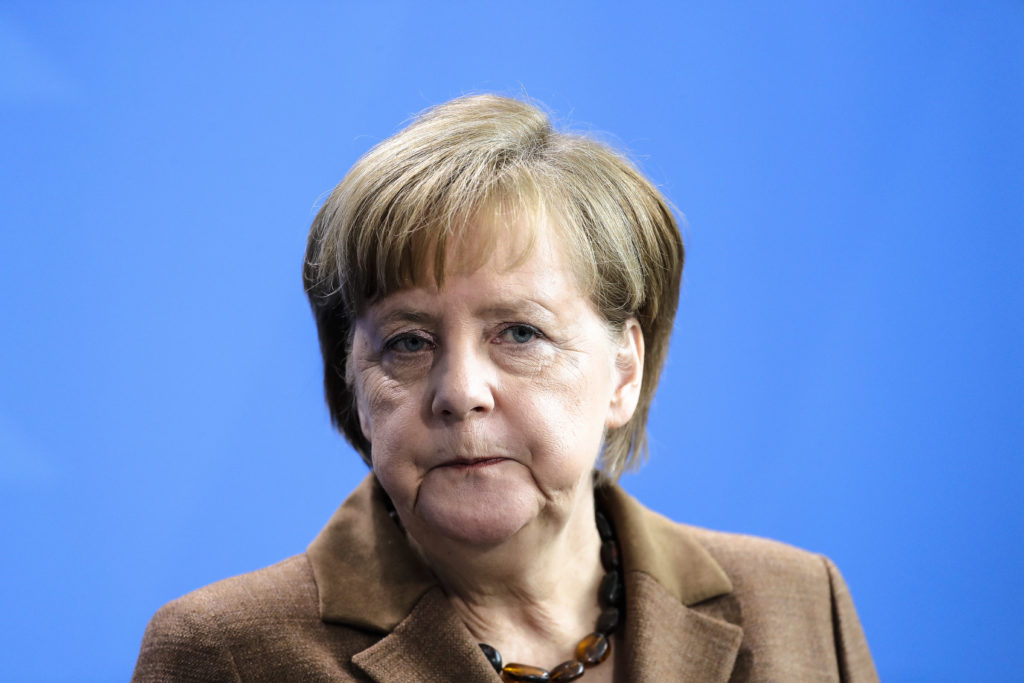While the world’s leading anti-Semitism watchdog recently slammed Germany’s “anti-Israel votes” at the United Nations, Merkel defended her nation’s commitment to Israel.
By World Israel News Staff and AP
Chancellor Angela Merkel on Wednesday defended Germany’s voting record on Israel at the United Nations, arguing that supporting the country doesn’t mean backing all of its actions.
The Jerusalem Post reported last week that the Los Angeles-based Simon Wiesenthal Center criticized Germany’s ambassador to the U.N., Christoph Heusgen, for casting “anti-Israel votes” among other things. The German government strongly backed Heusgen, who previously served for years as Merkel’s foreign policy adviser.
“A commitment to the state of Israel … does not mean 100% agreement with all of Israel’s political actions,” Merkel said during a regular question-and-answer session in the German parliament.
She noted that European Union countries consult on how to vote at the U.N., where Germany is currently serving a two-year stint on the Security Council.
Germany also came under fire this year when the newspaper Bild published a report based on “leaked documents containing funding contracts and internal reports” related to the German Society for International Cooperation (GIZ).
These documents, “reveal[edl that German taxpayer money is channeled to groups with ties to terror groups, that spread anti-Semitism, and that promote BDS (boycott, divestment, and sanctions) campaigns against Israel” announced NGO Monitor in a statement following the Bild report.
In 2018, GIZ staff was investigated for anti-Semitic activity, including social media posts by staff working in Jordan, Israel and the Palestinian territories. These posts also justified Palestinian rocket attacks on Israeli civilians and endorsed the BDS movement, which seeks Israel’s destruction.
A portion of the anti-Semitic content was disseminated by GIZ officials who direct German funding to Palestinian organizations.
Germany and other European countries haven’t joined the U.S. in recognizing Israel’s capital, Jerusalem, and continue to criticize the existence of Jewish communities in Judea and Samaria.


